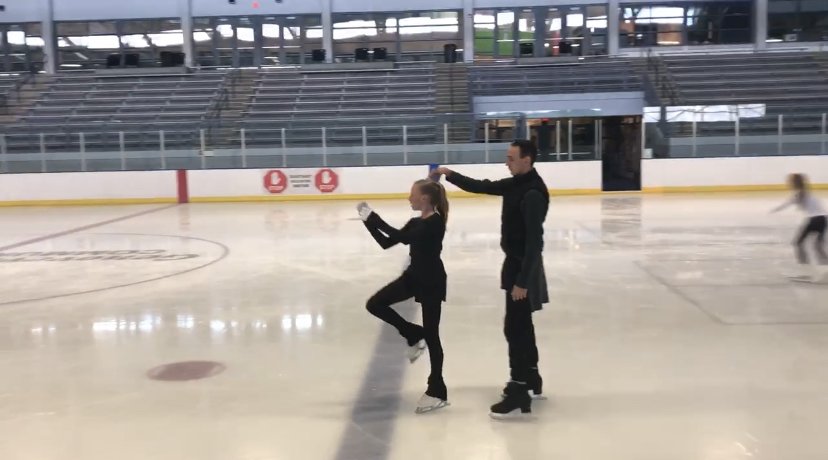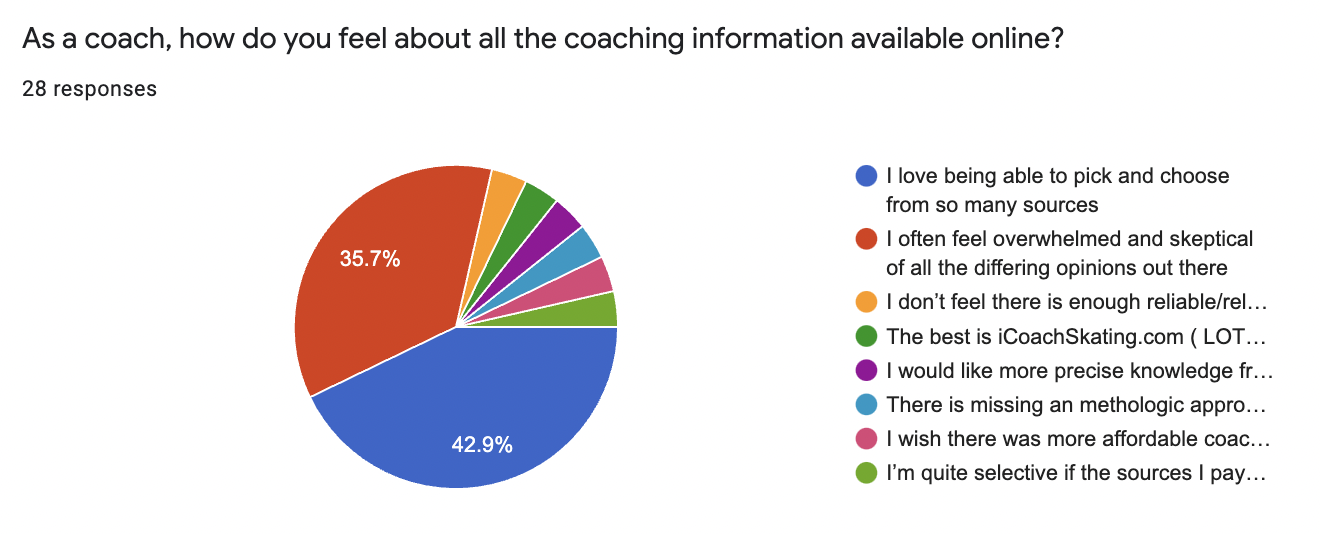Coaching Challenges - You Are Not Alone
A conversation with Annette T. Thomas & Angela Kim
Skating is evolving, and knowledge that used to only be accessible to a handful of coaches around the world, has begun to circulate the skating community. A broad number of coaches are now taking the time to learn all the shapes of the body on takeoff, angles, timing adjustments, twitch mechanics, and progressions that are necessary to further advance their jump techniques. It’s rapidly becoming known that there are more things we can do to set our skaters up for success at every level.
- Coach Luke Kirchgessner
[Angela] The ever-changing standards of our sport can get dicey, and perhaps these are growing pains as coaches continue to adapt to higher standards. Cohesive and unified coaching systems are lacking within the community as a whole. We wanted to understand some of the pain point coaches are having in this current culture in competitive skating.
We recently conducted a survey with 28 participants based in North America. We thank everyone who candidly spoke about their personally experiences. Here are some thoughts on our findings.
[Annette] As a long-time teacher what immediately stood out to me is that generally speaking coaches are a dedicated group of people who are constantly interested in improving their craft. This was seen in the question comparison between “Currently, what is your preferred mode of learning?” as “quick tips” (75%) and “If time and funds were not a factor, what would be your ideal mode of learning?” as “Deep Dive courses” (78%) and “workshops” (71%).
Challenge #1: Coaches have the desire to learn more, but for many it is being thwarted by time and the fact that courses and workshops are often expensive – not only does the coach have to pay for them but they also lose money as they have to give up those lessons they would have taught while going to conferences etc.
[Angela] An academy style of coaching similar and if not the same as European coaching models could be part of the solution here mentioned throughout the survey as something coaches wished they had. It’s clear that more support is needed from each other, especially as independent contractors.
Challenge #2: The lack of trust in the quality of what is “out there.” Mentoring was frequently mentioned as something that was needed and sorely lacking in the field.
[Annette] Rightly so, as social media has sensationalized mediocrity. We all know that just because someone is “famous” it doesn’t necessarily mean that they are good teachers or that their material is appropriate to your specific needs. 42.9% said they loved being able to pick and choose from so many sources while 35.7% said they often feel overwhelmed and skeptical of all the differing opinions out there.
A few coaches said they had their trusted sources (iCoachSkating was mentioned as was Brian Orser’s teaching videos on YouTube), but the majority indicated that were interested in seeking a progressive scientific method on how to develop skaters which would be available to all at a reasonable price and recognized as “world class”.
[Angela] This brings up the question in how coaches can feel more confident in their own teaching knowledge, especially as a new coach. This also goes for coaches who’ve been teaching for decades but are relying on “old-school approaches'.” We mentioned healthy rink environments with collective support is crucial is continued growth and sustainability as a coach. It’s often not what we intended but by not working with each other, parents take the reign and it becomes a harsh consumer market based on result versus process. Beacuse of this, coaches are thinking about their bottom line, overwhelmed with responsibilities, and skeptical with information out there- even when it comes to an accredited union.
Challenge #3: Most of the PSA rated coaches, (82%) said that the organization was helpful in giving their coaching credence but not necessarily in-depth teaching or mentoring.
[Annette] I personally feel that mentoring should be available to all new coaches as it is part of the “learn to teach” process and that seasoned coaches should be available and willing to give of their time and expertise to help bring up the next generation of coaches. I believe that this attitude would do much to ameliorate the often competitive and sometimes intimidating atmosphere among coaches.
[Angela] This competitiveness breeds this “everyone out for themselves” mentality leaving parents making constant coaching changes if they don’t see results right away.
[Annette] Yes, the system as it stands almost perpetuates this atmosphere and it can/should change.
[Angela] You see 32% wished they had better working conditions. I believe with more support for coaches from the rink top down, but also the relationships within coaches circles, there would be more time and headspace to learn coaching methodologies and build overall trust amongst colleagues.
[Annette] There is also the question of continuity in a training method in contrast to compartmentalized instruction for individual elements. There are no real conclusions to be drawn as yet, the conversation needs to continue and more people need to see where the holes are in the process of becoming a confident, well rounded and master- not just a “master rated” coach.
Trust takes time, materials need to be organized and scrupulously integrated into everyday coaching and the process of developing a skater accordingly. Injury prevention, human growth, biomechanics and learning to teach the whole person need to be accounted for in training.
To grow a culture of training healthy athletes in a healthy environment is going to take a concerted (meaning “in concert”!) effort to change what many of you called a toxic atmosphere. I hope we can continue the discussion. We are not saying that we have all the answers because we don’t but we do care and have been around long enough to know that things need to change for the better. Coaches have a great responsibility and we want to help.
Let’s keep the conversation going!




